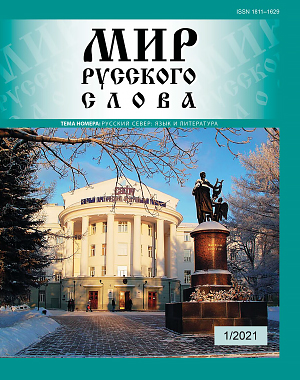The Role of Language Componential Analysis in Analytic Sentences Structures in Russian and Korean Languages
DOI:
https://doi.org/10.24412/1811-1629-2021-1-18-22Abstract
The aim of the research is to show the role of language component analysis in analytical structures in Russian and Korean languages. Analytical structures can be used in communication more than once, because there are diff erent options for changing the lexical and grammatical composition without changing the meaning of the sentence. Such structures can be used in sentences of diff erent communicative types (narrative, interrogative, imperative). In these structures, it is intonation that helps to express the communicative types of sentences, therefore, Russian language has more opportunities of expression. The scholarly novelty of the article lies in the fact that the mechanism of the component analysis method is based on the interaction of lexical and grammatical composition, intonation and their connections in the context. Important role is played by the ability of the word to form associative-thematic connections and connections of mutually exclusive opposition. The intonation in such structures reveals the potential features of each word. As a result, it is determined that in the Korean language in analytical structures, a large semantic load is carried by the vocabulary, which concretizes the meaning of the utterance up to the smallest components. In Russian language all four language components are equally important in analytical structures.
Keywords:
analytic sentences, interaction, oppositions, componential analysis, Russian language, Korean language
Downloads
References
Брызгунова Е.А. 1983 — Брызгунова Е. А. Звуки и интонация русской речи. М.: Русский язык, 1983.
References
language. In: Vestnik Irkutskogo gosudarstvennogo texnicheskogo universiteta. 2011, (7): 201–206. (in Russian)
Downloads
Published
How to Cite
Issue
Section
License
Articles of "The World of Russian Word" are open access distributed under the terms of the License Agreement with Saint Petersburg State University, which permits to the authors unrestricted distribution and self-archiving free of charge.




